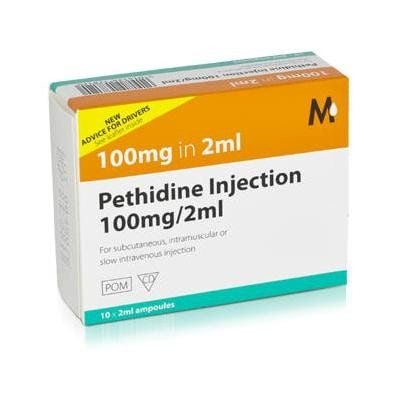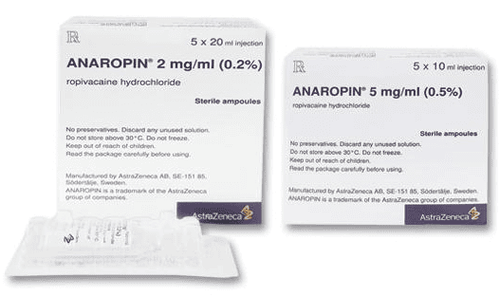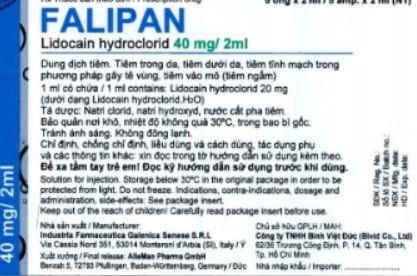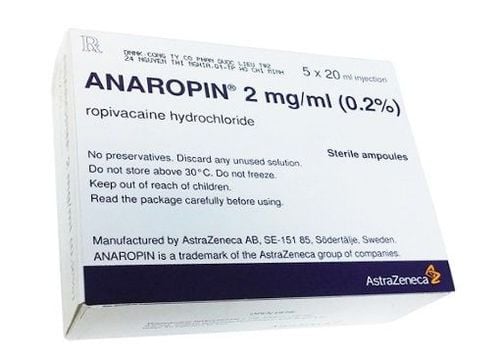This is an automatically translated article.
Posted by Doctor Nguyen Thi Hoai Nam - Department of Surgical Anesthesia, Vinmec Central Park International General HospitalA few studies used predictive discharge criteria to assess length of hospital stay. There is a need for a multimodal, rapid postoperative recovery program to reduce perioperative complications and hospital stay without compromising patient safety, in which epidural analgesia is a key component.
1. Role of epidural analgesia in early convalescent care
Proposed early recovery regimens for some of the most well-studied colorectal surgeries and has been evaluated in the last decade. Thoracic epidural analgesia using a mixture of local anesthetics and opioids for 48 hours postoperatively is recommended as one of the key elements of early recovery.
The investigators reported that other program elements including early mobilization, early feeding, reduced use of opioid analgesics, and thoracic epidural analgesia significantly reduced length of hospital stay, but the results were inconsistent. consistent implementation. There are many early recovery protocols used in colorectal surgery. There are 4-20 evidence-based factors in such regimens, all of which require early recovery and shorter hospital stays than “traditional care.” However, the composition of traditional care also varies considerably in the published studies. Furthermore, key components of rapid recovery such as elimination of bowel preparation and drainage, early feeding and mobilization have been incorporated into traditional “modern” care. A systematic review of early recovery programs concluded that, “despite their enthusiasm and implementation into everyday practice, this systematic review shows that, to date, there is very little data available. is available”.

Cho ăn sớm là một khâu trong chương trình chăm sóc hồi phục sớm
2. Length of hospital stay
A newer meta-analysis concluded that “implementation of 4 or more components of early postoperative recovery (ERAS) reduced hospital stays of more than 2 days and complications by almost 50% in patients undergoing colonic surgery. /Colorectal". Two questions arise: why use 20 interventions when 4 may be enough and what criteria do those 4 factors include? The specific role of epidural analgesia in the results of this meta-analysis is not clear because it does not apply to all patients; Furthermore, the epidural failure rate is cited as 28%.
Most efficacy studies of early resuscitation regimens fail to assess how many factors actually apply in practice. A review of improved outcomes after major surgery missed the early recovery literature due to studies of normal or low quality, and there was marked heterogeneity in published results. A Cochrane study concluded "the quality of the trials and the lack of other adequate outcome measures do not justify the performance of rapid surgery as the standard of care". Comparative, good-quality studies are needed to establish the independent determinants and prognostic factors of a program of faster postoperative recovery.
Several groups reached the same conclusions about early recovery regimens without being able to decide which factors in the commonly used regimen did not affect the outcome. Clearly all elements of an early recovery regimen are not equally effective; Furthermore some are unnecessary or even harmful, and the role of epidural analgesia must be considered. Some authors consider epidural analgesia as a prerequisite for the success of early resuscitation regimens. However this is not supported by current evidence.

Phục sớm sau mổ giúp người bệnh sớm trở về cuộc sống thường ngày
An article based on well-designed RCTs did not find any advantage of epidural analgesia with length of hospital stay. This was confirmed by 16 RCTs of a meta-analysis of patients undergoing colorectal surgery. Although epidural analgesia is superior to parenteral opioid analgesia, good analgesia, and quicker recovery of bowel function, there is no reduction in hospital stay except for an increased risk of pruritus, urinary retention, and hypotension. pressure. Controversy over the role of epidural analgesia is increasing due to changing surgical techniques. A systematic review of laparoscopic colorectal analgesia between epidural analgesia versus patient-controlled intravenous opioids (PCA) failed to demonstrate superiority over epidural analgesia. The PROSPECT group did not recommend an epidural for laparoscopic colectomy.
3. Conclusion
In summary, despite the lack of consensus on the optimal number of components, the implementation of early rehab regimens has been shown to significantly reduce the length of hospital stay without increasing complications. This is most likely due to carefully standardized perioperative care rather than precise coordination and numerical deployment of factors in early recovery. Currently, there is no convincing evidence that epidural analgesia has any advantage over laparoscopic or open colectomy.
Translated by Narinder Rawal, MD, PhD, Epidural Technique for Postoperative Pain Gold Standard No More?, (Reg Anesth Pain Med 2012;37: 310 - 317)














